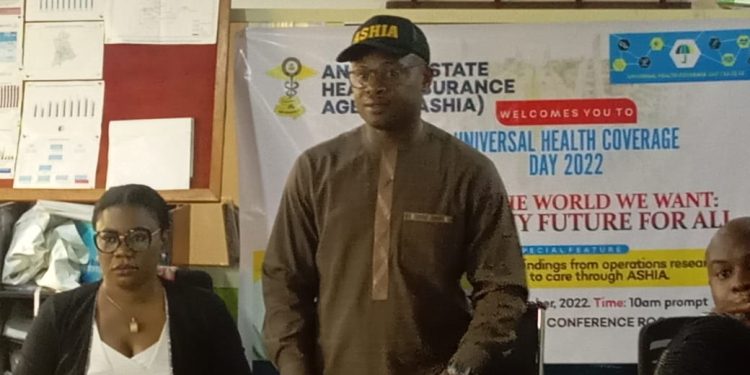The Anambra State Health Insurance Agency (ASHIA), on Tuesday, said that the number of informal sector enrollees increased from 109 in 2019 to 143,555 in 2021 through Its adoption model.
Dr Simeon Onyemaechi, Managing Director, ASHIA, gave the statistics at a news conference to mark the 2022 International Universal Health Coverage Day, commemorated every Dec. 12.
The UN General Assembly in 2012 endorsed a resolution urging countries to accelerate progress toward universal health coverage so that everyone, everywhere, should have access to quality and affordable healthcare.
Onyemaechi described the adoption model, which commenced in February 2019, as a process where philanthropists and the wealthy in a society adopt and pay health insurance premiums for the less privileged.
He said that the adoption model increased the total number of enrollees in the state’s health insurance pool as of November to 180,000.
“In our quest to attain universal health coverage in the state, we conceptualise the Adoption Model, which increased coverage of informal sector enrollment and enhanced the financial resources of the agency.
“The model targeted the low-income population in the health insurance pool to improve access to affordable and quality healthcare for all.
“There was also increased fund generation via the model as analysis in January shows that the adoption model generated approximately N780 million in the funding pool of the scheme.
“The World Health Organisation and the European Union have adjudged our scheme as the best performing informal sector health insurance scheme in Nigeria, and eight states have understudied and replicated our model,” he said.
Onyemaechi urged more residents to enroll in the insurance scheme to save themselves from high out-of-pocket health expenditures that could potentially impoverish them.
He also urged the media, civil society organisations, community leaders, policymakers and influencers to be advocates for health insurance schemes to help the state attain universal health coverage by 2030.
Also speaking, Mrs Uche Ezenwaka, Research Consultant, said that achieving universal health coverage required appropriate health-seeking behaviour for improved health outcomes.
Ezenwaka of the Health Policy Group, University of Nigeria, Nsukka, said that the findings from a recent survey showed improvement in the health-seeking behaviour of enrollees in the state.
“Our findings show that before enrollment in the scheme, many persons patronised traditional healers, took concoctions, and self-medicated, while some did not even take action when they fell ill.
“But after enrollment, their health-seeking behaviour improved due to low cost of treatment, availability of quality drugs, health personnel as well as prompt and quality healthcare services at health facilities,” she said.

